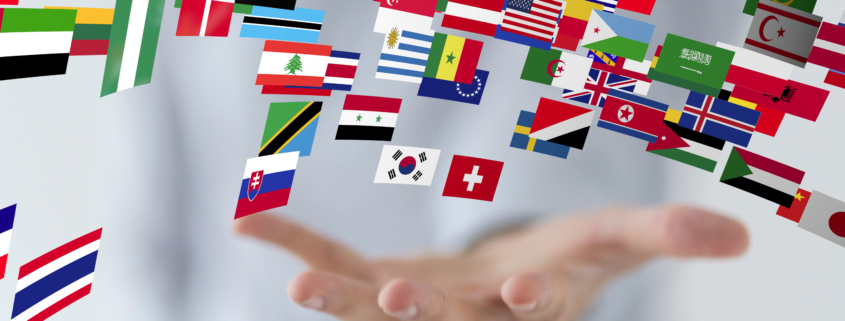U.S. Hague Convention Treaty Partners
If you are facing the frightening situation of International Child Abduction, you need to determine whether the Hague Convention treaty is “in force” between the U.S. and the other country involved.
The Hague Convention on Civil Aspects of International Child Abduction, also known as the Hague Abduction Convention, is a treaty that ensures that a child internationally abducted by a parent is returned to their habitual country as quickly as possible.
The convention’s primary goal is to preserve a status quo child custody arrangement that existed immediately before an alleged wrongful removal or retention. This is to deter a parent from crossing international borders to find a more sympathetic court to rule a custody battle in his/her favor. Additionally, the child must be 15 or younger for the treaty to apply.
The Convention focuses on the child, providing a shared civil remedy among partner countries. Depending of where your child was taken to determines on whether the Convention is “in force” between nations. It is therefore important to determine whether the Convention is in force with the particular country in question and when the Convention went into force between the U.S. and the other country.
Hague Convention Treaties
The Hague Convention is a treaty that many countries, including the United States, have joined. So how do you determine whether the treaty is “in force” between the U.S. and the other country involved? The Federal Judicial Center explains:
‘The issue whether the Convention is “in force” between states can be complex. There are differences between the processes by which a state can be bound by the treaty, specifically between those who are “member states” and those who become “party states.” Member states are those states that were members of The Hague Conference on Private International Law at the time of adoption of the Child Abduction Convention at the 14th Session in 1980.
- Actions by member states include ratifications, approvals, or acceptances.
- Party states are all other countries that agree to be bound by the Convention and “accede” to the Convention.
The legal significance of ratification versus accession is important.
For member states, the ratification by one member state causes the convention to automatically come into force between that ratifying member state and all other previously ratifying member states. However, when a member state ratifies the Convention, the Convention does not automatically enter into force between that state and a party state that has acceded to the convention.
The treaty “enters into force” between two countries when they are both bound by the Convention. In order for the Convention to enter into force between a member state and a party state, the member state must expressly accept the accession by the party state. The same applies to the accession of one party state vis-á-vis another acceding party state; that is, the accession must be specifically accepted by the previously acceding party state.’
As of July 2019, 101 states are a party to the convention. Like other multilateral treaties, such as extradition treaties, some countries that have signed a Hague Convention treaty with the United States are noncompliant or refuse to hold up the terms of the treaty.
List of U.S Hague Convention Treaty Partners
Listed below are the countries that are participants of the Hague Convention in force with the United States of America. The official list and dates the treaties signed can be found here.
| Andorra | Lithuania |
| Argentina | Luxembourg |
| Armenia | Macedonia, Republic of |
| Australia | Malta |
| Austria | Mauritius |
| Bahamas, The | Mexico |
| Belgium | Monaco |
| Belize | Montenegro |
| Bosnia and Herzegovina | Morocco |
| Brazil | Netherlands |
| Bulgaria | New Zealand |
| Burkina Faso | Norway |
| Canada | Pakistan |
| Chile | Panama |
| China (Hong Kong and Macau only) | Paraguay |
| Colombia | Peru |
| Costa Rica | Poland |
| Croatia | Portugal |
| Cyprus | Korea, Republic of |
| Czech Republic | Romania |
| Denmark | Saint Kitts and Nevis |
| Dominican Republic | San Marino |
| Ecuador | Serbia |
| El Salvador | Singapore |
| Estonia | Slovakia |
| Fiji | Slovenia |
| Finland | South Africa |
| France | Spain |
| Germany | Sri Lanka |
| Greece | Sweden |
| Guatemala | Switzerland |
| Honduras | Thailand |
| Hungary | Trinidad and Tobago |
| Iceland | Turkey |
| Ireland | Ukraine |
| Israel | United Kingdom (Anguilla, Bermuda, Cayman Islands, Falkland Islands, Isle of Man, Montserrat) |
| Italy | Uruguay |
| Jamaica | Venezuela |
| Japan | Zimbabwe |
| Latvia |
Final Thoughts
As you can see, most of the world, including the United States, belongs to the Hague Convention, and periodically they will negotiate treaties to streamline international justice.
When family law disputes cross not just state but national boundaries, it is essential to have a knowledgeable Illinois-based family law attorney who understands all of the laws that go along with child custody cases, including international custody cases.
Erin Masters and Anthony Joseph have extensive experience in cases involving international child custody disputes in both courts located in the State of Illinois and the United States federal court system.
We have extensive knowledge and experience with The Hague Convention on Civil Aspects of International Child Abduction (“The Hague Convention”) that was enacted into law through the International Child Abduction Remedies Act (“ICARA”) which provides that a parent whose child has been wrongfully removed from or retained in the United States may petition for the child’s return to his or her country of habitual residence. Contact us here today to set up a complimentary consultation.











